-
Content count
3,167 -
Joined
-
Last visited
-
Days Won
10
Posts posted by Mark Foote
-
-
On 12/13/2024 at 3:41 PM, Maddie said:
Second one cites difficulties, but supports a finding of no difference:Key Findings
Key Biomedical Findings
- Biological data are severely limited, and often methodologically flawed.
- There is limited evidence regarding the impact of testosterone suppression (through, for example, gender-affirming hormone therapy or surgical gonad removal) on transgender women athletes’ performance.
- Available evidence indicates trans women who have undergone testosterone suppression have no clear biological advantages over cis women in elite sport.
Third link, same folks as the second link, making clear they recommend inclusion until there are facts to suggest unfairness:
The authors recommend that all reasonable efforts should be made to make sport inclusive and accessible for transgender individuals. They conclude that there is no firm basis available in evidence to indicate that trans women have a consistent and measurable overall performance benefit after 12 months of testosterone suppression.
“This literature review makes it clear that we need more scientific data derived from methodologically sound research focused on trans women athletes to build a foundation of solid evidence and to ultimately guide policy recommendations. The review suggests that sports should support inclusion of trans women in the female category in sport until there is robust and peer-reviewed evidence that it is not safe or fair for other competitors,” said Paul Melia, CCES president and CEO.
Not enough evidence to say, and lacking evidence, they recommend inclusion. Ok.
Thanks, Maddie.-
 1
1
-
On 12/13/2024 at 3:41 PM, Maddie said:That first study cites a significant loss of strength in trans women, but:
Conclusion: In transwomen, hormone therapy rapidly reduces Hgb to levels seen in cisgender women. In contrast, hormone therapy decreases strength, LBM and muscle area, yet values remain above that observed in cisgender women, even after 36 months. These findings suggest that strength may be well preserved in transwomen during the first 3 years of hormone therapy.
I'll read on...
-
On 1/8/2025 at 10:37 PM, silent thunder said:
Always worthy of a re-post...
"... mit herzen, mit schmerzen, gar nichts!"
-
 1
1
-
 1
1
-
-
On 1/3/2025 at 3:44 PM, Cobie said:Full belly, big smile.
Dog ignores thoughts of ancients,
whose bones turned to dust.
whose bones turned to dust,
I think I know; his house is
in the village, though
(apologies to Robert Frost, "Stopping by Woods on a Snowy Night")
-
 1
1
-
-
21 hours ago, Geof Nanto said:
This is a snippet from a long conversation I’ve been having with ChatGPT exploring qing (emotions, feelings, sentiments, passions, and love in all its aspects) in neidan and Jungian thought.Did I miss something? Seems like the topic you put to ChatGPT was the relationship between qing and xing.
Did the conversation with ChatGPT contribute something to your exploration of that relationship? Did I miss that, too?
-
-
On 1/2/2025 at 3:57 AM, Keith108 said:Beautiful! I love the peace and solitude of winter. ❤️
When I started posting here, I made the same mistake in this thread, though. For this thread, we are supposed to use the last line of the preceding poem, which in this case was “licked clean by the dog”. Challenging one!
Licked clean by the dog
Plate on the floor, now emptyFull belly, big smile
🙏
Sometimes we even patch:
which melts another
two popsicles on the floor
licked clean by the dog
licked clean by the dog
sprinkles-smeared pane, revealing
winter at standstill
winter at standstill
hearkens for barks ambitious,
passes only meows
passes only meows
the cardboard box of kittens
licked clean by the dog
Licked clean by the dog
Plate on the floor, now empty
Full belly, big smile
(whew!)
-
 1
1
-
-
On 12/29/2024 at 3:32 PM, Bindi said:
There was one element that I haven’t referred to here, though I did refer to it many times years ago on the daobums. I did work exclusively with dreams for decades, but I also worked helping my family with their dreams including my mother’s dreams. A couple of decades of helping her work with her dreams kicked off her ability to see what was happening in both the subtle body and the physical body. This in turn led to her guiding me through the actions I needed to take to develop my lower and middle dantian and balance upper and lower forces, and she also was able to give me information on what was happening in my subtle channels, which was happening without her direction, it was just feedback.
To make a long story short, I am led to believe from her seeing that clearing Ida and Pingala nadi’s with appropriate emotional and mental work leads to the natural waking of kundalini, which then uses the previously prepared dantians to sojourn in on her way up. I believe this is why my experience with kundalini is different to what seems to be offered in methods like kundalini yoga, for me kundalini has time and space to do everything she needs to do at various points and she remains cool while doing it, leaving nothing undone before she continues to rise, and not tearing me to bits in the process. My mother died a couple of years ago, but kundalini was already awake at that point, and my dreams have kept me informed about her movements from that point on.
What I perceive as the “grip of karma” I found in subtle body heart work that touched on the causal level, allowing kundalini to break karmas grip there before she returned to the subtle body. Just to be very clear, I haven’t finished this kundalini journey yet, I am aware that rudra granthi remains to be cut, so I’m not suggesting I understand everything or have accomplished everything.
How wonderful, that you could share a language about these things with your mother, and work on them together.
I definitely have correlates, for the lower dan-t'ien and the middle. I've come to view them as key elements in the openness of the nerve exits between the vertebrae of the sacrum and the spine. That's why it's all taken me so long, to arrive at practice as I now experience it--an ability to feel throughout the body has to develop, right to the surface of the skin, and a consistent way to return to that abillity and advance it.
Gautama's description of the second jhana, that I believe corresponds with the development of that lower dan-t'ien:
… imagine a pool with a spring, but no water-inlet on the east side or the west side or on the north or on the south, and suppose the (rain-) deva supply not proper rains from time to time–cool waters would still well up from that pool, and that pool would be steeped, drenched, filled and suffused with the cold water so that not a drop but would be pervaded by the cold water; in just the same way… (one) steeps (their) body with zest and ease…
(AN III Book of Fives, The Fivefold, The Five-Limbed, tr. Pali Text Society Vol. III p 18-19)
Some quotes I thought were related:
Rinzai teacher Omori Sogen wrote:
… It may be the least trouble to say as a general precaution that strength should be allowed to come to fullness naturally as one becomes proficient in sitting. We should sit so that our energy increases of itself and brims over…
(“An Introduction to Zen Training: A Translation of Sanzen Nyumon”, Omori Sogen, tr. Dogen Hosokawa and Roy Yoshimoto, Tuttle Publishing, p 59)
Omori quoted one Hida Haramitsu:
We should balance the power of the hara (area below the navel) and the koshi (area at the rear of the pelvis) and maintain equilibrium of the seated body by bringing the center of the body’s weight in line with the center of the triangular base of the seated body.
(Hida Haramitsu, “Nikon no Shimei” [“Mission of Japan”], parentheticals added; publisher and date unknown)
Gautama's description of the third corporeal jhana, that corresponds for me with the middle dan-t'ien:
… free from the fervor of zest, (one) enters and abides in the third musing; (one) steeps and drenches and fills and suffuses this body with a zestless ease so that there is not one particle of the body that is not pervaded by this zestless ease. … just as in a pond of blue, white, and red water-lilies, the plants are born in water, grow in water, come not out of the water, but, sunk in the depths, find nourishment, and from tip to root are steeped, drenched, filled and suffused with cold water so that not a part of them is not pervaded by cold water; even so, (one) steeps (one’s) body in zestless ease.
(AN III Book of Fives, The Fivefold, The Five-Limbed, tr. Pali Text Society Vol. III p 18-19)
My comment:
The water-lilies I believe represent the influence of the legs, the arms, and the head on activity in the abdominals, and consequently on stretch in the ligaments of the spine. The feeling of a combined influence of the extremities in the abdomen could be said to be like lilies of three colors floating under the surface of some body of water. The exact influence of each extremity remains unclear (zest ceases), yet with a sense of gravity and a stretch in particular ligaments, I can arrive at an ease.
Gautama declared that the sages abide in the third concentration. I remind myself that the activity of the body in inhalation and exhalation tends toward coordination by the free placement of consciousness, and look for ease.
That last is my key to advancing my ability to feel, especially if I can turn it around to experience the activity of the body solely by virtue of the free location of consciousness.
Dermatomes, areas on the surface of the skin and their related vertebral exits:
-
 1
1
-
-
On 12/30/2024 at 2:19 PM, old3bob said:not so for me and algebra, hard to get in and easy to lose. (although i like trig)
Said the former, past-life Egyptian. -
Google AI says:
The phrase "nothing important happened today" comes from a supposed diary entry by King George III on July 4, 1776, the day the United States declared independence from Great Britain. However, the British Library's curator, Arnold Hunt, says that King George III did not keep a diary.
I think a congressional inquiry is called for--surely that will no longer qualify for the "Totally Boring News" thread!
-
1 hour ago, Bindi said:... As I see it, yes we are caught in stories which are the samskaras, but our fundamental and life steering stories originate from karma that we are born with. The source of this level of karma is deep within but it is as real as this table in front of me. I can choose to see both the karma generator and this table in front of me as unreal, but both are going to hurt my shins if I ignore them and walk straight into them.
I have been grappling with the concept of reincarnation since I was twelve and had a dream about a particularly devastated old man whom I was informed was me. Not surprisingly it’s been mainly his karma that I’ve played out in my life, but by addressing it, even if it’s taken many decades, I can finally see an end in sight. So as much as I’d prefer to be a reincarnation and karma denier, I have been pushed in the other direction, and have in effect prised these stories open to resolve them.
What's unclear to me is how you came to establish a relationship between your work with dreams, emotions, and karma and kundalini.
-
2 hours ago, Apech said:There is also a mistake I think about non-dual 'just sitting' or resting in the natural state. It doesn't mean just relaxing or every 'yoga' class would be a Dzogchen class (which they patently are not). The key I think is the union of two aspects - the luminous (awareness) and emptiness (substance/power) ... I see this as a kind of ultimate alchemical act. Like the fusing of oil and water - somehow making ... or allowing perhaps ... that which is aware in us and that which is energetic come together such that you can realize that one exists in dependence on the other and that they are truly non-dual. To achieve such a feat requires the work of total integration - without which the whole thing will fall apart since ordinarily our beings cannot bear this great mystery.
The necessary daily union of the luminous (awareness) and emptiness (energy) comes out of the relinquishment of habit and volition in the activity in the body in favor of the experience of the singularity of the consciousness associated with "I am", even as that singularity shifts and moves. The location of consciousness becomes the sole source of the activity of the body, "the cessation of (volition in) in-breathing and out-breathing" is attained, the individual is "just sitting".
The exceptional union of the luminous (awareness) and emptiness (energy) that is the activity of the mind in feeling and perceiving solely by virtue of the occurrence of consciousness, I can't really speak to, but I surmise from the Pali sermons that would roughly describe it. -
26 minutes ago, Bindi said:
Vipassana seems to be a passive approach to emotions, emphasising passive observation of emotions, detachment to these emotions, and impermanence of emotions, with the aim of diminishing the power of emotions and karmic patterns. Vipassana does not ask people to actively engage with emotions, nor intentionally recreate emotions.
Do you personally engage with emotions that come up, actively feeling the feeling, or do you observe them from a detached perspective, mentally framing them as impermanent?
I assume a Vipassana teacher would be quite opposed to my assertion that emotions need to be fully engaged with, and even that they need to be recreated and actively felt if they come up in dreams. Even though both methods work with emotions, I think the seemingly small difference in method leads to vastly different outcomes.
Modern Nonduality claims nondual realisation can be achieved in extremely short timeframes, after a single exposure to nondual theory even. Stirling suggests that emotions and karma can be disengaged from in weeks or a month. Older styles of nonduality acknowledge their process takes years at least, but I still find their outcome to fall short of our potential.
Neidan asks that we return to our original spirit, yoga asks that we keep going within until we come to our Atman. The person who achieves this aim authentically is the one who has found the ultimate solution, and this is not discussed in nondual circles.
I won't disagree, though I'm not that familiar with Neidan or yoga.
After I wrote my response up above, I realized that I was probably not headed in the direction you were hoping for. I recalled Dr. John Upledger's writing on "SomatoEmotional Release".The allopathic medical profession has failed to find any evidence of a rhythm in the cranial-sacral fluid, the basis of Dr. Upledger's approach, and the osteopathic professionals may be aware of his approach but they don't seem to acknowledge such a rhythm either (how could they, when their licensing requirements are just like the MD's).
An interview where Upledger lays out his approach:http://www.shareguide.com/Upledger.html
It's an old website, not https, so if you're using Chrome you may have to go through a warning.
Upledger came to understand that physical trauma can be stored in the structure of the body. He had good experience using his cranial-sacral technique to allow the energy of the trauma stored in the body to re-emerge, usually along the same pathway by which it had entered.
I think you may be able to check his book on the subject out of the library, if not it's inexpensive:
"Your inner physician and you : craniosacral therapy and somatoemotional release", Upledger, John E., 1979
-
 1
1
-
-
-
57 minutes ago, Bindi said:
... I'm starting to see how the whole energy system works, and it’s somewhat intricate but absolutely perfect and beautiful, an amazing work of art, and our emotional nature has a place in this ultimate system. I’m fighting for a new paradigm, which at the same time is as old as the hills, because it was recognised long ago in certain aspects of daoism and neidan and the Yogas. But these underlying truisms have been largely suffocated by quick and easy nonduality which walks roughshod over the Ancients clear understanding of what needs to be addressed for true spiritual growth.
Writing a very long piece for my own site, lately. The gist of it would be that when Gautama spoke of concentration, "one-pointedness of mind" was assumed, and when he spoke of the four arisings of mindfulness, "the five limbs" were assumed. "The five limbs" would be the four concentrations concerned with the body, the cessation of habit and volition in the activity of the body being the fourth, and an overview of the body taken after the fourth.
The four arisings are the arising of mindfulness of the body in the body, of the feelings in the feelings, of the mind in the mind, and of the states of mind in the states of mind. Gautama declared that his way of living was one particular instance of the four arisings, an instance composed of sixteen observations or contemplations, four in each of the arisings. Among the sixteen was:
Contemplating cessation I shall breathe in. Contemplating cessation I shall breathe out.
(SN 54.1; tr. PTS vol. V p 275-276; MN 118 “beholding stopping”)
The contemplation of “cessation” while breathing in and while breathing out is conducive to the cessation of habit and volition in inhalation and exhalation, the hallmark of the fourth concentration, particularly if there has been a recent experience of “the five limbs”.
Gautama declared the mindfulness of the sixteen was the “best of ways”, and his usual way of living in the rainy season (SN 54.11; PTS vol. V p 289).
More from the piece I'm writing, which I hope addresses the issue of transcendence versus integration, if somewhat obliquely:
There are many different schools of Buddhism. Nevertheless, I would guess that most respected Buddhist teachers experience “the five limbs” of concentration regularly (even though they may not describe their experience as such), and most practice a mindfulness very much like the mindfulness that was Gautama’s way of living.
They do so in part because, as Gautama said, that mindfulness:
… if cultivated and made much of, is something peaceful and choice, something perfect in itself, and a pleasant way of living too.
(SN 54.9, tr. PTS SN vol. V p 285)
By Gautama’s own admission, enlightenment is not required to enjoy that “pleasant way of living”:
Formerly… before I myself was enlightened with the perfect wisdom, and was yet a Bodhisattva, I used generally to spend my time in this way of living.
(SN 54.8; PTS vol. V p 280: “the Tathagatha’s way of life”, 289)
In the sermon on “the seven (types of) persons existing in the world”, Gautama also admitted that there are those who have “seen by means of wisdom” and yet have not completely destroyed the cankers (the cankers are “craving for the life of sense”, “craving for becoming”, and “craving for not-becoming” [DN 22; PTS vol. ii p 340]--when the cankers are “destroyed”, the roots of the craving for sense-pleasures, the roots of the craving “to continue, to survive, to be” [tr. “bhava”, Bhikkyu Sujato], and the roots of the craving not “to be” [the craving for the ignorance of being] are destroyed).
If a person can enjoy a mindfulness like Gautama’s without having become enlightened, and can have “seen by means of wisdom” without having completely destroyed the cankers, then how can one know who to trust as a teacher?
... Gautama came to his awakening, and to the mindfulness that he taught, through concentration:
I know that while my father, the Sakyan, was ploughing, and I was sitting in the cool shade of a rose-apple tree, aloof from pleasures of the senses, aloof from unskilled states of mind, I entered on the first meditation (concentration), which is accompanied by initial thought and discursive thought, is born of aloofness, and is rapturous and joyful, and while abiding therein, I thought: ‘Now could this be a way to awakening?’ Then, following on my mindfulness… there was the consciousness: This is itself the Way to awakening. This occurred to me…: ‘Now, am I afraid of that happiness which is happiness apart from sense-pleasures, apart from unskilled states of mind?’ This occurred to me…: I am not afraid of that happiness which is happiness apart from sense-pleasures, apart from unskilled states of mind.’
(MN 36; PTS vol I p 301; parenthetical added)
When Gautama spoke of concentration, one-pointedness of mind was implied. When he spoke of the four arisings of mindfulness, as shortly before his death, I believe the practice of “the five limbs” was implied. The teachers who have benefited me the most have been those who acknowledged both these practicalities, in one way or another.
In the sermon on "The Applications of Mindfulness" (Satipatthana, MN 10), Gautama lists some possible aspects of mindfulness of the feelings in the feelings:
And how does a mendicant meditate observing an aspect of feelings?
It’s when a mendicant who feels a pleasant feeling knows: ‘I feel a pleasant feeling.’
When they feel a painful feeling, they know: ‘I feel a painful feeling.’
When they feel a neutral feeling, they know: ‘I feel a neutral feeling.’
When they feel a pleasant feeling of the flesh, they know: ‘I feel a pleasant feeling of the flesh.’
When they feel a pleasant feeling not of the flesh, they know: ‘I feel a pleasant feeling not of the flesh.’
When they feel a painful feeling of the flesh, they know: ‘I feel a painful feeling of the flesh.’
When they feel a painful feeling not of the flesh, they know: ‘I feel a painful feeling not of the flesh.’
When they feel a neutral feeling of the flesh, they know: ‘I feel a neutral feeling of the flesh.’
When they feel a neutral feeling not of the flesh, they know: ‘I feel a neutral feeling not of the flesh.’
And so they meditate observing an aspect of feelings internally, externally, and both internally and externally. They meditate observing feelings as liable to originate, as liable to vanish, and as liable to both originate and vanish. Or mindfulness is established that feelings exist, to the extent necessary for knowledge and mindfulness. They meditate independent, not grasping at anything in the world.
That’s how a mendicant meditates by observing an aspect of feelings.
I have summarized the actionable elements of the mindfulness that Gautama said was his own way of living, as follows. The second element has to do with mindfulness of feeling in the feelings. It's a far cry from the description above, but the version I believe associated with "one-pointedness of mind", and perhaps part of the thought "initial and sustained" of the first concentration:
1) Relax the activity of the body in inhalation and exhalation;
2) Find a feeling of ease and calm the senses connected with balance, in inhalation and exhalation;
3) Appreciate and detach from thought, in inhalation and exhalation;
4) Look to the free location of consciousness for the automatic activity of inhalation and exhalation.
(Applying the Pali Instructions)That's integration, and in the fourth element a kind of transcendence. As you said, the transcendence is necessary to the integration, the integration is necessary to the transcendence.
-
-
MINEOLA, Texas (KETK) – The Mineola Police Department said they are searching for a sign that was stolen from the local Dairy Queen for the second time recently.

Photo courtesy of Mineola PD.
According to the police department, the sign pictured to the left, was initially reported stolen on Aug. 14, 2024. In 2022, when the sign was stored behind the Dairy Queen during a remodel, it was stolen for the first time and then returned to it’s stored location.
Upon it’s return, officials said the sign was mounted to the side of the building and now it’s been stolen from that spot too.
https://www.ketk.com/news/local-news/dairy-queen-sign-stolen-again-in-mineola/
-
On 12/23/2024 at 10:08 AM, ralis said:Humanity is! Anthropogenic Global Warming is caused by human activity! Anthropogenic is defined as; caused by human activity. That is a scientific fact.
... I could write more in this thread, but most don't understand non-linear dynamics.
Unlike Buddhist monks,Bonobos are sometimes referred to as the “Make Love, Not War” apes. They are famous for their creative and wide-ranging sexual activities.
(https://www.bonobo.org/about-bonobos)
But like the hippies of the sixties, many of the male bonobos have now taken on the characteristics of stock brokers:
Researchers discovered aggressive acts between bonobos from the same group exceeded those recorded among chimpanzees, and that aggressive male bonobos were more successful in mating.
(https://news.mongabay.com/2024/04/bonobos-the-hippy-apes-may-not-be-as-peaceful-as-once-thought/)
Where does it all end!
-
 1
1
-
-
On 12/24/2024 at 3:57 AM, Keith108 said:
In a beer bottleA fly stuck in the backwash
Samsara again
... samsara again,
out where a friend, is a friend...
(takes one to know one)
-
-
-
On 12/22/2024 at 2:32 PM, Cobie said:Very nice, really relaxing.

At 0:56 the old G. definitely would have said, see I’m right.
You have better ears than I have, I can't make out what they're saying in the background at :56--shucks!
-
1 minute ago, Cobie said:Where’s the guitar?
-
 1
1
-
 1
1
-
-
There's at least one sermon in the Pali collection where Gautama disparages women, stating that they will attempt to ensnare a man, even on their deathbed (why, that old misogynist!).
I believe the rules of the order stipulate that the punishment for the offense of masturbation is to be returned to the end of the lunch line, forced to eat whatever the other monks left on the table rather than the choicest morsels. The offense for intercourse of any kind with another being is, of course, expulsion from the order. Better a man should stick his member in the mouth of a venomous serpent than in a woman, according to the old GOAT.
I heard a TedX lecture once where a woman claimed she had researched the subject, and the sperm are at their best for about a week after production. She suggested that might be tied in to the urge to masturbate, in men.
-
 1
1
-

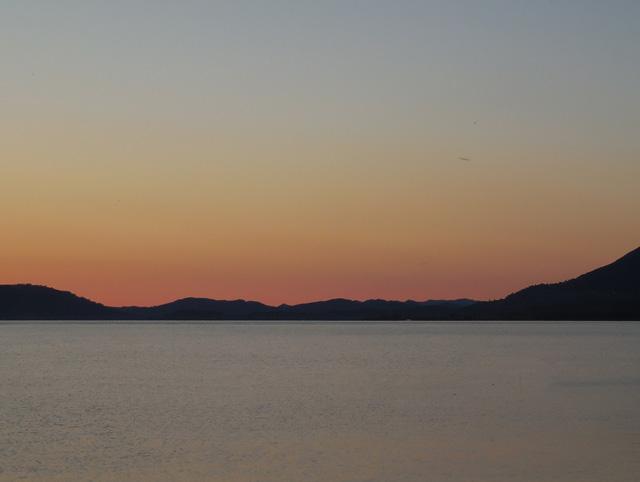

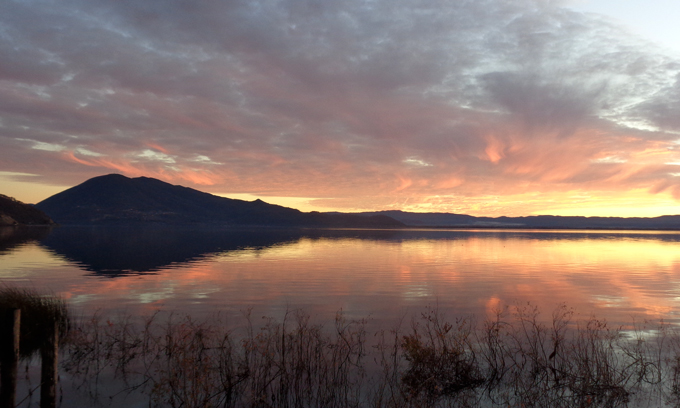

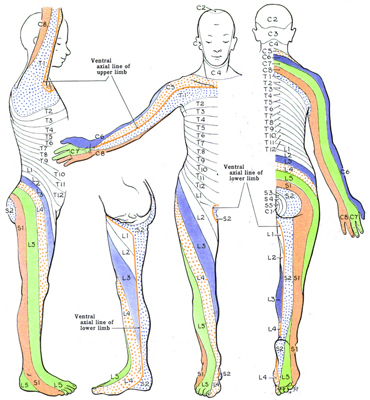
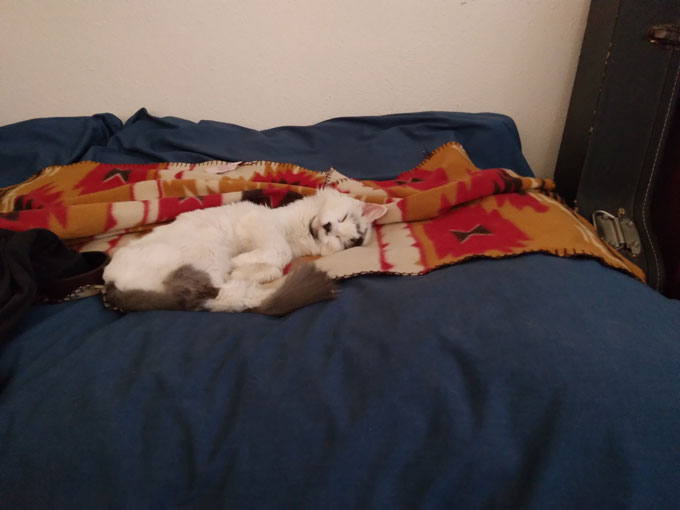

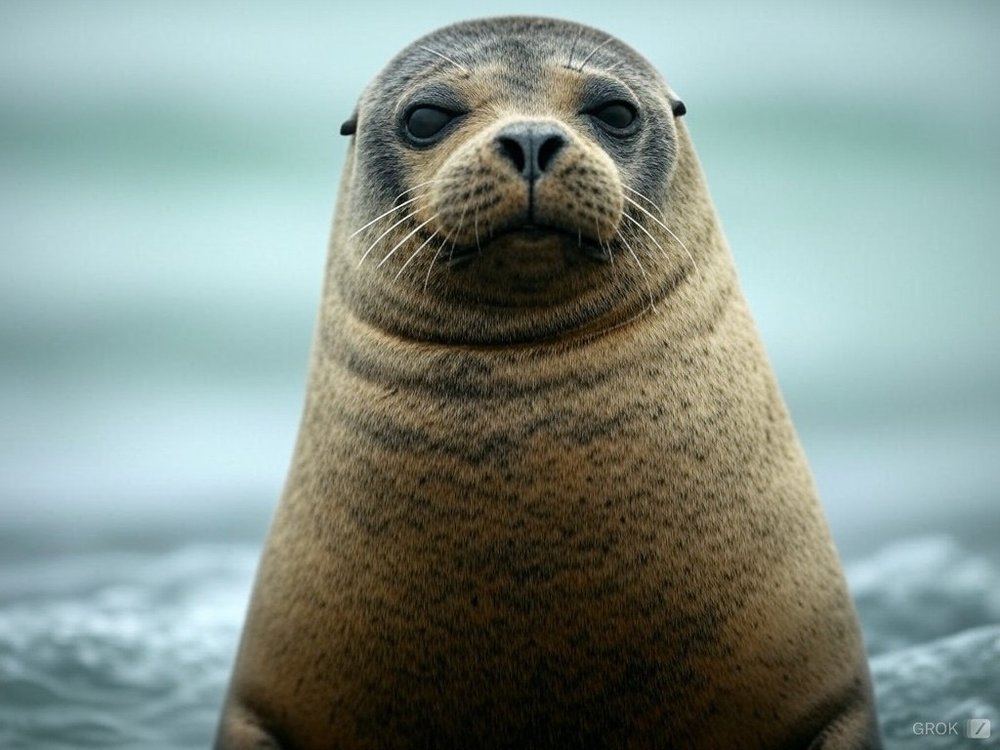
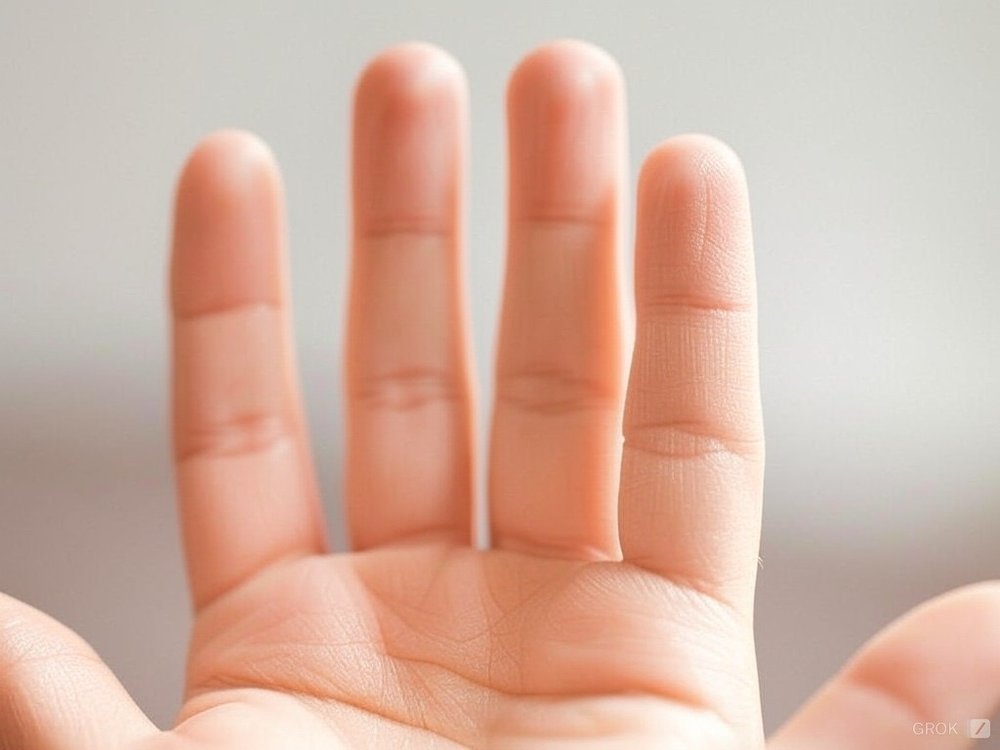
The Totally Boring News Thread
in The Rabbit Hole
Posted
There's hurricanes in Florida and Texas needs rain.
The French hate the Germans. The Germans hate the Poles.
And I don't like anybody very much!
For man's been endowed with a mushroom shaped cloud.
Someone will set the spark off and we will all be blown away.
What nature doesn't do to us will be done by our fellow man.
(KIngston Trio; Songwriters: Sheldon M Harnick; The Merry Minuet lyrics © Alley Music Corp., Trio Music Co., Inc.)